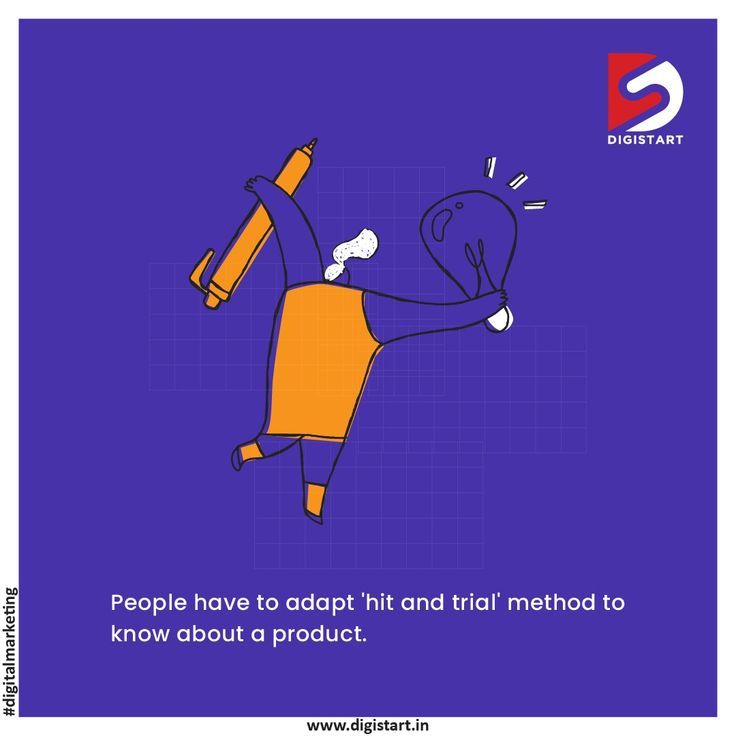Essential Smartphone Apps for Mobile Marketing: Top Tools for Success
Essential smartphone apps for mobile marketing
Mobile marketing has become indispensable for businesses aim to connect with their audience in today’s digital landscape. With smartphones being an extension of consumers’ daily lives, marketers must leverage mobile applications to create meaningful engagement. While numerous apps exist in the marketplace, two stand out ampere especially essential for effective mobile marketing strategies: social media platforms and analytics tools.
Social media platforms: the foundation of mobile marketing
Among the vast array of social media applications, Instagram and Facebook remain the virtually powerful tools for mobile marketers. These platforms offer unprecedented reach, sophisticated targeting capabilities, and versatile content formats that can drive engagement and conversions.
Instagram: visual marketing powerhouse
Instagram has evolved from a simple photo share app to a comprehensive marketing ecosystem. With over a billion monthly active users, itoffersr marketers unparalleled opportunities to connect with audiences through visual storytelling.

Source: appstimes.in
The platform’s business features make it specially valuable for mobile marketing:
-
Instagram stories
These ephemeral content pieces generate urgency and allow brands to showcase behind the scenes glimpses, limited time offers, and authentic moments that build connection. -
Shoppable posts
Direct product tagging enable seamless shopping experiences without leave the app, reduce friction in the customer journey. -
Instagram Reels
Short form video content help brands capture attention in a progressively competitive space, with enhanced discovery potential through the explore page. -
IGTV
Longer form content allow for deeper storytelling and educational material that can establish authority in your niche. -
Instagram insights
Build in analytics provide crucial data on audience demographics, content performance, and engagement metrics.
For mobile marketers, Instagram’s value lie in its visual nature and the ability to create immersive brand experiences. Companies like glossier and Airbnb have built their brands mostly through Instagram’s ecosystem, demonstrate its potential for both direct to consumer sales and brand building.
Facebook: targeting and versatility
Despite predictions of its decline, Facebook remain an essential platform for mobile marketing. Its sophisticated advertising ecosystem and extensive user data make it specially valuable for target campaigns.
Key Facebook feature for mobile marketers include:
-
Advanced audience targeting
Facebook’s detailed demographic, behavioral, and interest base target options allow for precise audience segmentation. -
Facebook Messenger
Direct messaging capabilities enable personalized customer service and conversational marketing. -
Facebook groups
Community building feature help brands foster engagement and loyalty among their virtually dedicated customers. -
Facebook alive
Real time video streaming create authentic connections and drive higher engagement than standard posts. -
Facebook marketplace
Local selling feature benefit businesses with physical locations or regional service areas.
The Facebook business suite app consolidate these features, allow marketers to manage their Facebook and Instagram presence from a single mobile interface. This integration streamline workflow and ensure consistent message across platforms.
Why social media apps lead mobile marketing
Social media applications dominate mobile marketing for several reasons:
-
Time spend
Users spend an average of 2.5 hours everyday on social media apps, create multiple opportunities for brand exposure. -
Native mobile experience
These platforms are design mainly for mobile use, ensure optimal user experience. -
Multi format content
From stories to reels to live video, social platforms support diverse content types to match different marketing objectives. -
Direct response mechanisms
Build in calls to action, message, and shopping features create clear conversion paths. -
Community building
Social platforms facilitate two-way communication that build brand loyalty and advocacy.
For small businesses with limited marketing budgets, social media apps provide cost-effective reach and engagement opportunities that traditional marketing channels can not match.
Analytics tools: data drive mobile marketing
While social media platforms provide the distribution channels for mobile marketing, analytics tools deliver the insights need to optimize performance. Among these, Google Analytics and specialized mobile marketing platforms stand out as essential.
Google Analytics: the foundation of marketing measurement
The Google Analytics mobile app transform data analysis from a desktop bind activity to an on the go capability. This accessibility allows marketers to monitor campaigns in real time and make agile adjustments base on performance data.
Key features that make Google Analytics essential include:
-
Real time reporting
Monitor active users, traffic sources, and content performance as it happen. -
Conversion tracking
Measure how efficaciously your mobile marketing drives desire actions. -
Audience insights
Understand the demographics, interests, and behaviors of your mobile visitors. -
Custom alerts
Receive notifications when metrics exceed or fall below specify thresholds. -
Multichannel attribution
See how mobile marketing interact with other channels in the customer journey.
The mobile app version of Google Analytics make these insights accessible anyplace, allow marketers to demonstrate ROI to stakeholders, identify emerge opportunities, and troubleshoot issues pronto.
Specialized mobile marketing platforms
Beyond Google Analytics, specialized mobile marketing platforms like mix panel orapps flyerr provide deeper insights specifically tailor to mobile engagement. These platforms excel at:
-
User journey mapping
Visualize how users navigate through your mobile experience. -
Cohort analysis
Track how different user groups behave over time. -
Retention metrics
Measure how efficaciously your mobile marketing keep users engage. -
A / b testing
Experiment with different messaging, designs, and offer to optimize performance. -
Attribution modeling
Understand which touchpoints drive conversions in complex mobile journeys.
These specialized platforms help marketers move beyond basic metrics to understand the nuances of mobile user behavior. This deeper understanding enables more sophisticated segmentation, personalization, and optimization strategies.
Why analytics apps are essential
Analytics applications are crucial for mobile marketing success because they:
-
Eliminate guesswork
Replace assumptions with data drive decisions about content, timing, and target. -
Optimize budget allocation
Direct resources to the high-pitched perform channels and tactics. -
Identify friction points
Pinpoint where users drop off in the mobile conversion funnel. -
Demonstrate ROI
Provide concrete evidence of mobile marketing’s contribution to business objectives. -
Enable personalization
Gather the insights need to deliver relevant experiences to different user segments.
Without robust analytics, mobile marketing become a scattershot approach kinda than a strategic initiative. The mobile first nature of these analytics apps ensure marketers can stay connected to performance data disregarding of location.
Integrate social and analytics for maximum impact
The true power of mobile marketing emerge when social media and analytics applications work in tandem. This integration creates a virtuous cycle of execution and optimization:
The execution analysis loop
-
Content distribution
Deploy campaigns through social media apps -
Performance tracking
Monitor results via analytics apps -
Insight generation
Identify successful patterns and improvement opportunities -
Strategy refinement
Adjust target, message, or creative base on insights -
Enhanced execution
Implement refined approach through social channels
This continuous improvement loop drive progressively effective mobile marketing over time. The mobile nature of both application types allow marketers to maintain this cycle disregarding of location.
Practical implementation strategies
To maximize the benefits of these essential mobile marketing apps:
-
Set up custom dashboards
Configure analytics apps to highlight your nigh critical KPIs for at a glance assessment. -
Establish notification protocols
Determine which metrics warrant real time alerts and which can be review sporadically. -
Create content calendars
Use social media apps’ scheduling features to maintain consistent presence while allow flexibility for timely content. -
Develop testing frameworks
Consistently experiment with different content types, post times, and message approaches. -
Build cross-functional workflows
Ensure insights from analytics apps inform content creation for social platforms.
By treat these applications as an integrated system quite than isolated tools, marketers can create more cohesive and effective mobile marketing programs.
Emerge trends in mobile marketing apps
While social media and analytics apps form the foundation of mobile marketing, several emerge trends are shape the future landscape:
Augmented reality integration
Social platforms are progressively incorporate AR features that allow brands to create immersive experiences. From virtual try-ons to interactive product demonstrations, these capabilities are transformed how consumers engage with products through mobile devices.
Voice search optimization
As voice assistants become more prevalent, mobile marketing must adapt to conversational search patterns. Analytics tools that will track voice queries and social platforms that will optimize for audio content will gain importance.

Source: thegreatapps.com
Privacy first analytics
With increase privacy regulations and the deprecation of third party cookies, mobile marketing analytics are evolved toward first party data and aggregate insights. This shiftrequirese more sophisticated measurement approaches within the constraints of user privacy preferences.
Social commerce expansion
The line between social media and e-commerce continue to blur, with platforms introduce more seamless shopping experiences. This convergence make social apps yet more central to mobile marketing strategies focus on direct conversion.
Conclusion: the dual pillars of mobile marketing
While the mobile marketing landscape encompass numerous applications, social media and analytics tools stand as the two essential categories that marketers can not succeed without. Social platforms provide the reach, engagement, and conversion mechanisms, while analytics applications deliver the insights need to optimize performance.
Unitedly, these complementary tools create a powerful ecosystem for connecting with mobile consumers. As smartphone usage will continue to will dominate digital engagement, mastery of these essential applications will remain fundamental to will market success.
The mobile first nature of both application types ensure that marketing professionals can maintain continuous campaign oversight and agile optimization disregarding of location. By focus on excellence in these two critical app categories, marketers can build mobile strategies that drive meaningful business results in a progressively competitive landscape.



